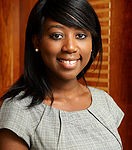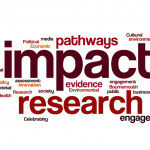The LSE Public Policy Group is running a free one day event on evidencing the impact of research.
Date: Monday 13 June 2011
Time: 10-5pm
Venue: New Academic Building, LSE, London
Academics are increasingly being pressed to provide evidence of impact from their research on the world outside academia. And universities will have to provide evidence of impact as part of the new Research Excellence Framework. But there is confusion about the different definitions of impact that exist amongst funding bodies and research councils, and also about methods of measuring impact.
This one day conference will look at a range of issues surrounding the impact of academic work on government, business, communities and public debate. We will discuss what impact is, how impacts happen and innovative ways that academics can communicate their work. Practical sessions will look at how academic work has impact among policymaking and business communities. Also how academic communication can be improved and how individual academics can easily start to asses their own impact.
PANELS:
Research Impact and the REF
Professor Rick Rylance (Chief Executive, Arts and Humanities Research Council)
David Sweeney (Director of Research, Innovation and Skills, HEFCE)
Professor Paul Wiles (Panel Chair, social work and social policy panel, REF impact pilot)
Current Thinking in Assessing Impact
Professor Patrick Dunleavy (Impact of Social Sciences project, London School of Economics)
Professor Alan Hughes (Centre for Business Research, University of Cambridge)
Tomas Ulrichsen (Public and Corporate Economic Associates)
Innovative Methods for Impact and Engagement
Professor Stephen Curry (blogger, Imperial College London)
Martyn Lawrence (Senior Publisher, Emerald Insight)
Paul Manners (Director, National Coordinating Centre for Public Engagement, UWE)
Mike Peel (Jodrell Bank Centre for Astrophysics / Wikimedia UK)
BREAKOUT SESSIONS:
Academic impact on policy-making
Maria O’Beirne (Analysis and Innovation Directorate, Department for Communities and Local Government)
Jill Rutter (Better Policy Making Programme Director, Institute for Government)
Knowledge transfer and the role of research mediators
Nick Pearce (Director, IPPR)
Professor Judy Sebba (University of Sussex)
Academic impacts on industry and business
James John (Director of Strategy, director of strategy, civil government, HP)
A ‘how to’ guide to measuring your own academic impact
Jane Tinkler (Impact of Social Sciences project, London School of Economics)
Improving academic communication
Professor Patrick Dunleavy (Impact of Social Sciences project, London School of Economics)
Chris Gilson (Managing Editor, British Politics and Policy blog, London School of Economics)
This event is free and open to all but pre-registration is required. For more information phone and email the PPG team on 020 7955 6064 or 020 7955 6731 or by email on impactofsocialsciences@lse.ac.uk|. You can find more information on the Investigating Academic Impact website.














 New CMWH paper on maternity care
New CMWH paper on maternity care From Sustainable Research to Sustainable Research Lives: Reflections from the SPROUT Network Event
From Sustainable Research to Sustainable Research Lives: Reflections from the SPROUT Network Event REF Code of Practice consultation is open!
REF Code of Practice consultation is open! ECR Funding Open Call: Research Culture & Community Grant – Apply now
ECR Funding Open Call: Research Culture & Community Grant – Apply now ECR Funding Open Call: Research Culture & Community Grant – Application Deadline Friday 12 December
ECR Funding Open Call: Research Culture & Community Grant – Application Deadline Friday 12 December MSCA Postdoctoral Fellowships 2025 Call
MSCA Postdoctoral Fellowships 2025 Call ERC Advanced Grant 2025 Webinar
ERC Advanced Grant 2025 Webinar Update on UKRO services
Update on UKRO services European research project exploring use of ‘virtual twins’ to better manage metabolic associated fatty liver disease
European research project exploring use of ‘virtual twins’ to better manage metabolic associated fatty liver disease